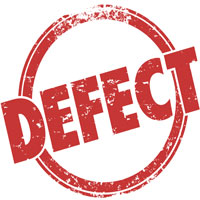 Over the past decade, approximately 83,000 Americans have died due to defective medical devices. That shocking number is a major reason behind the Food and Drug Administration’s (FDA) decision to change its medical device approval process.
Over the past decade, approximately 83,000 Americans have died due to defective medical devices. That shocking number is a major reason behind the Food and Drug Administration’s (FDA) decision to change its medical device approval process.
The overhaul is necessary, as the current approval process dates back more than 40 years – eons ago, in terms of the way technology has changed the world in the intervening period.
The FDA’s medical device approval process is known as the 510(k) pathway, and it was established by Congress back in 1976. It is likely not coincidental that the FDA announced that it would update and make changes to the 510(k) pathway approval process the day after the United States-based International Consortium of Investigative Journalists (ICIJ) released a report stating that, over the past 10 years, defective medical devices were linked to 1.7 million injuries and 83,000 deaths.
The ICIJ report does admit that in certain cases, there is no clear connection between the “adverse event” – death or injury – and the medical device. However, its analysis identifies hundreds of medical device products sold under various brand names, and the type of medical harm they have caused. The report also states that safety gaps it has identified are more likely to affect female patients.
In a November 2018 statement, the FDA Commissioner and the Director of the Center for Devices and Radiological Heath both said that manufacturers rely on comparative testing against predicate devices. Predicate devices are legally marketed devices to which new devices may be deemed “substantially” equivalent.
However, the older predicate devices may not have the same type of technology as newer devices, and in some cases, those predicate devices were approved decades ago. According to the FDA’s own data, at least 20 percent of predicate devices are 10 years old or older. That means there is no improvement in these devices, even if they are relatively safe. Continual improvement is the “hallmark of health technologies,” according to the FDA.
For that reason, the 510(k) pathway update is focusing on using more recent predicates. The FDA will post on its website the devices demonstrating “substantial equivalence” to older predicate devices.
While the FDA claims these older predicates are safe and no devices require market removal, it wants product developers to use newer predicates, as well as promoting competition, to develop better features that improve patient outcomes.
Those features may concentrate on allowing patients to stay in their homes during treatment and recuperation, rather than stay in the hospital or another type of healthcare facility.
If you or a loved one have been the victim of a defective medical product approved by the FDA, you need the services of the experienced Philadelphia defective medical product lawyers at Brookman, Rosenberg, Brown & Sandler. We will fight hard to protect your rights and get you the compensation that you deserve. Call us today for a free initial consultation at 215-569-4000 or complete our online form.